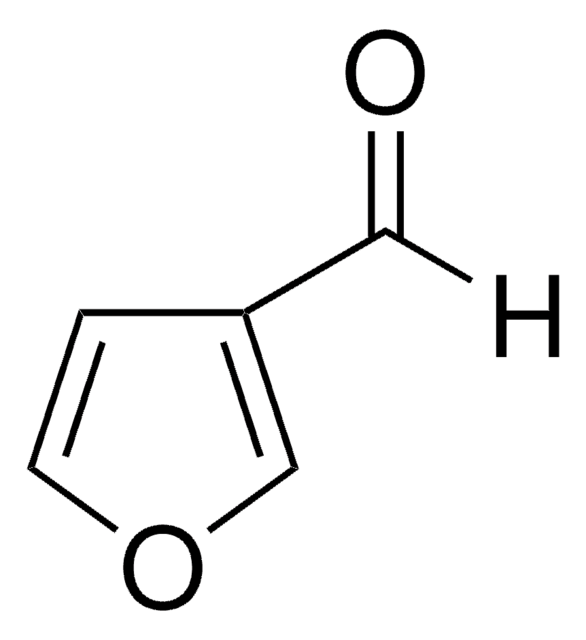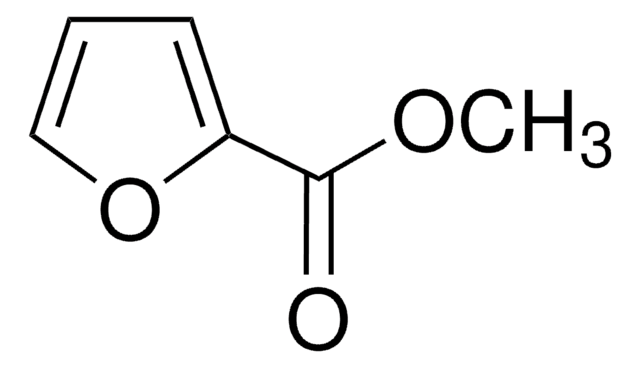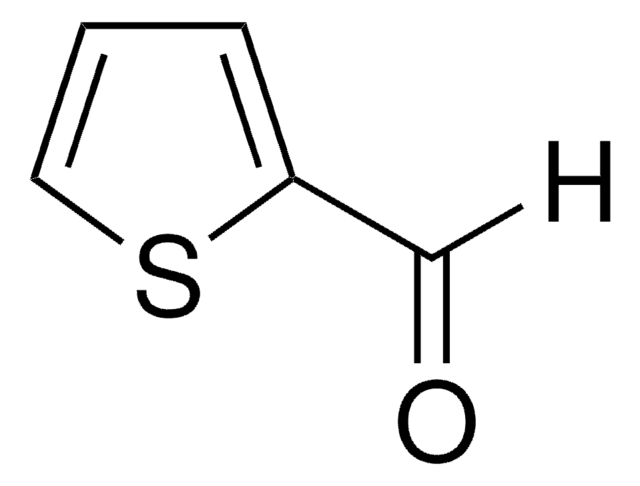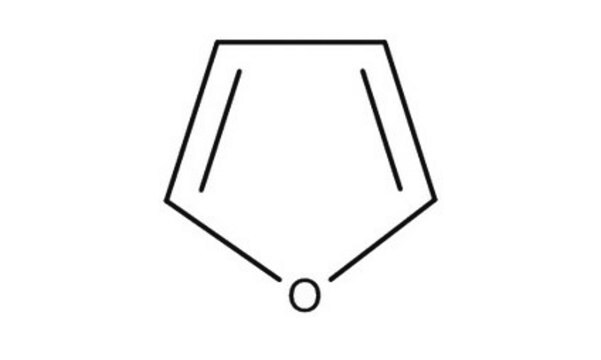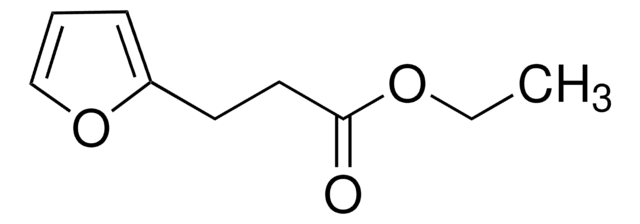W501301
Ethyl 2-furoate
≥98%, FG
Synonym(s):
Ethyl furan-2-carboxylate
About This Item
Recommended Products
biological source
synthetic
Quality Level
grade
FG
Halal
Kosher
reg. compliance
EU Regulation 1334/2008 & 872/2012
Assay
≥98%
bp
196 °C (lit.)
mp
32-37 °C (lit.)
density
1.117 g/mL at 25 °C (lit.)
application(s)
flavors and fragrances
Documentation
see Safety & Documentation for available documents
food allergen
no known allergens
Organoleptic
floral; balsamic; fruity
SMILES string
CCOC(=O)c1ccco1
InChI
1S/C7H8O3/c1-2-9-7(8)6-4-3-5-10-6/h3-5H,2H2,1H3
InChI key
NHXSTXWKZVAVOQ-UHFFFAOYSA-N
Looking for similar products? Visit Product Comparison Guide
Related Categories
General description
Storage Class Code
11 - Combustible Solids
WGK
WGK 3
Flash Point(F)
158.0 °F - closed cup
Flash Point(C)
70 °C - closed cup
Personal Protective Equipment
Certificates of Analysis (COA)
Search for Certificates of Analysis (COA) by entering the products Lot/Batch Number. Lot and Batch Numbers can be found on a product’s label following the words ‘Lot’ or ‘Batch’.
Already Own This Product?
Find documentation for the products that you have recently purchased in the Document Library.
Our team of scientists has experience in all areas of research including Life Science, Material Science, Chemical Synthesis, Chromatography, Analytical and many others.
Contact Technical Service

